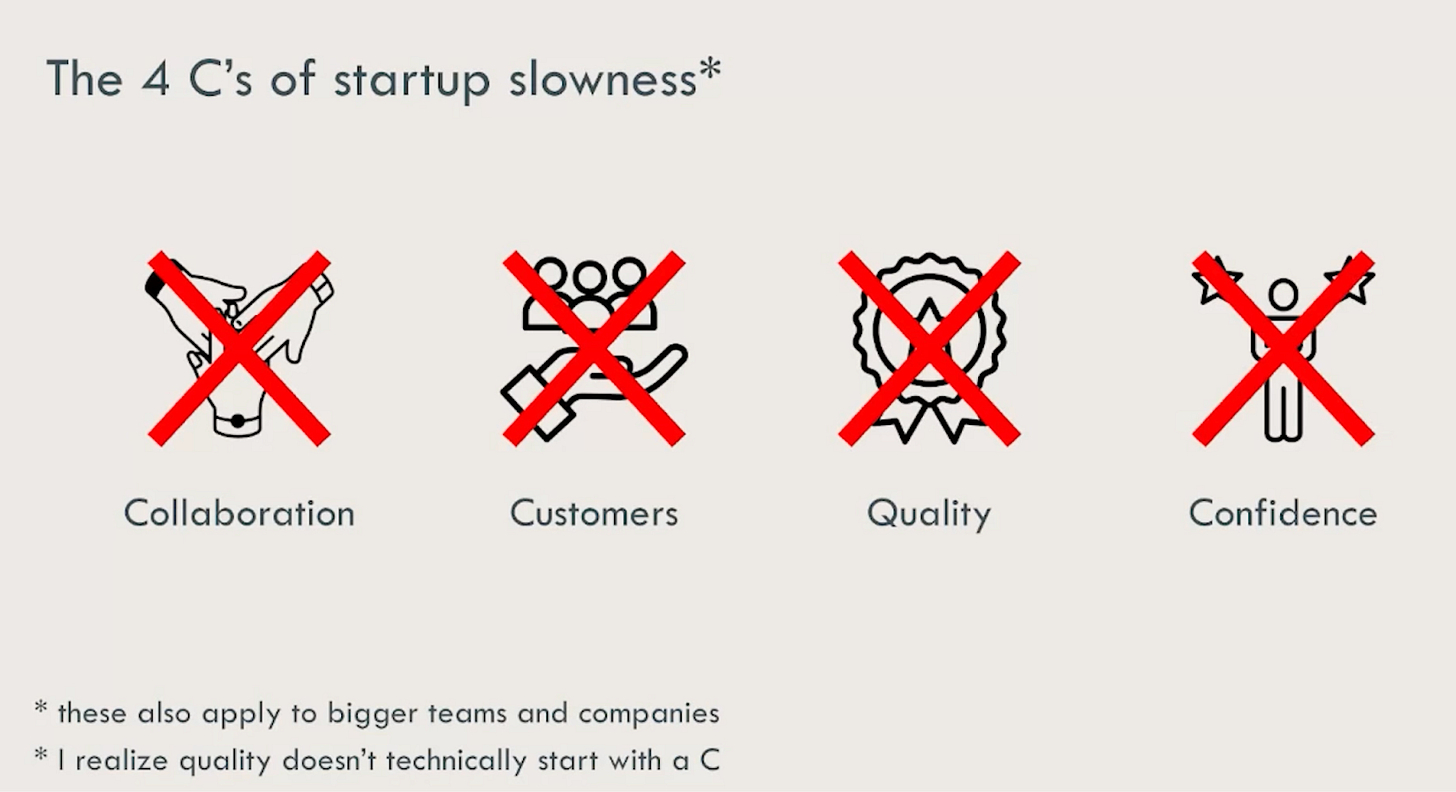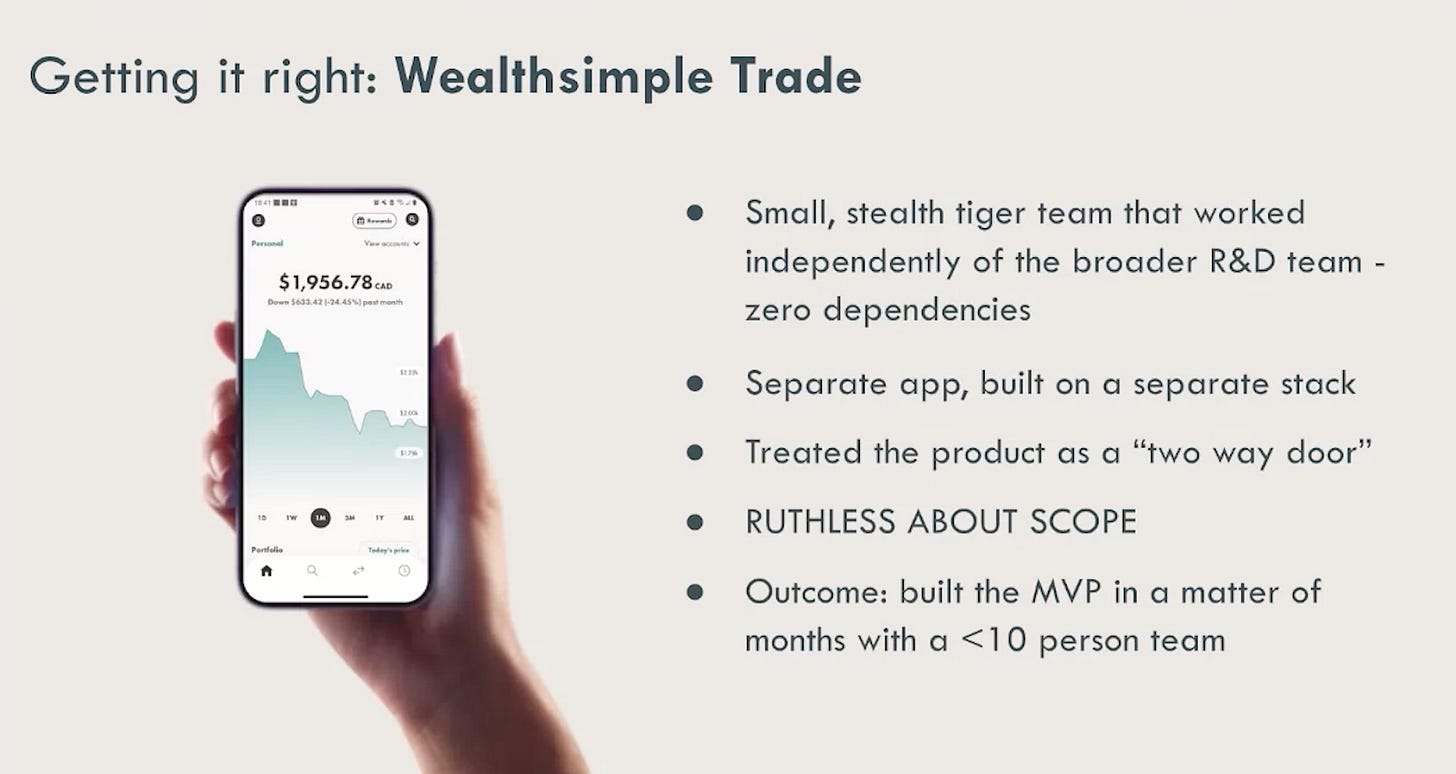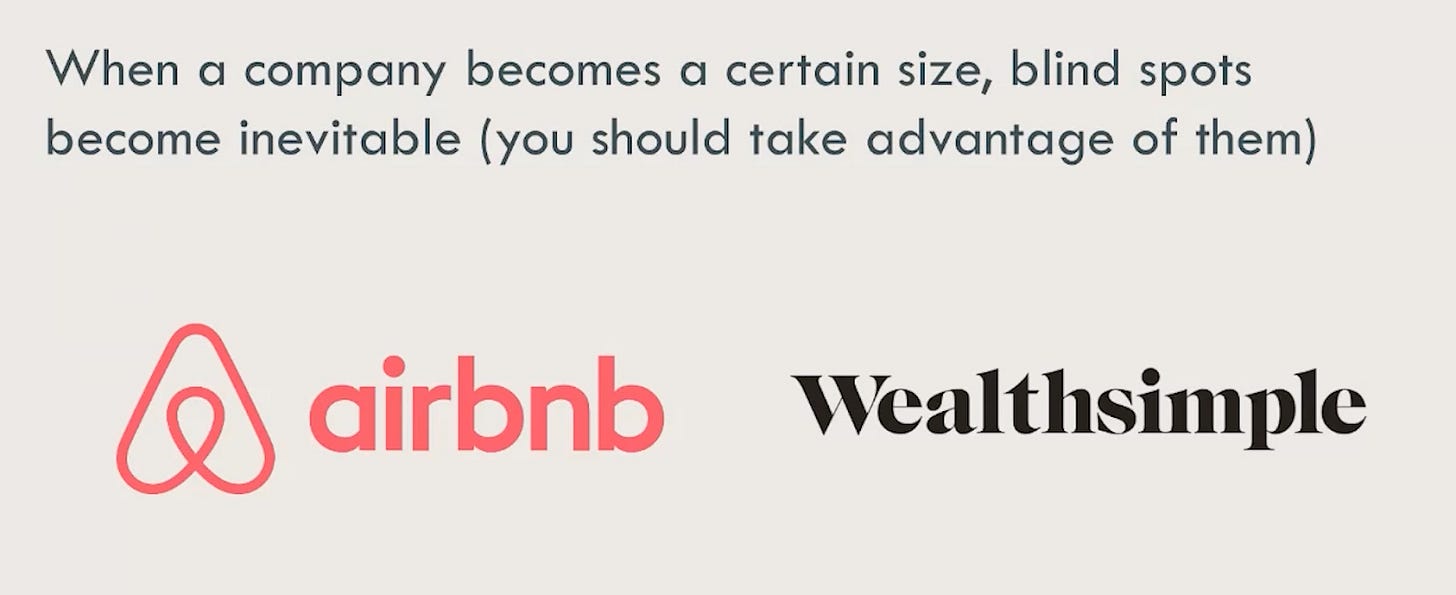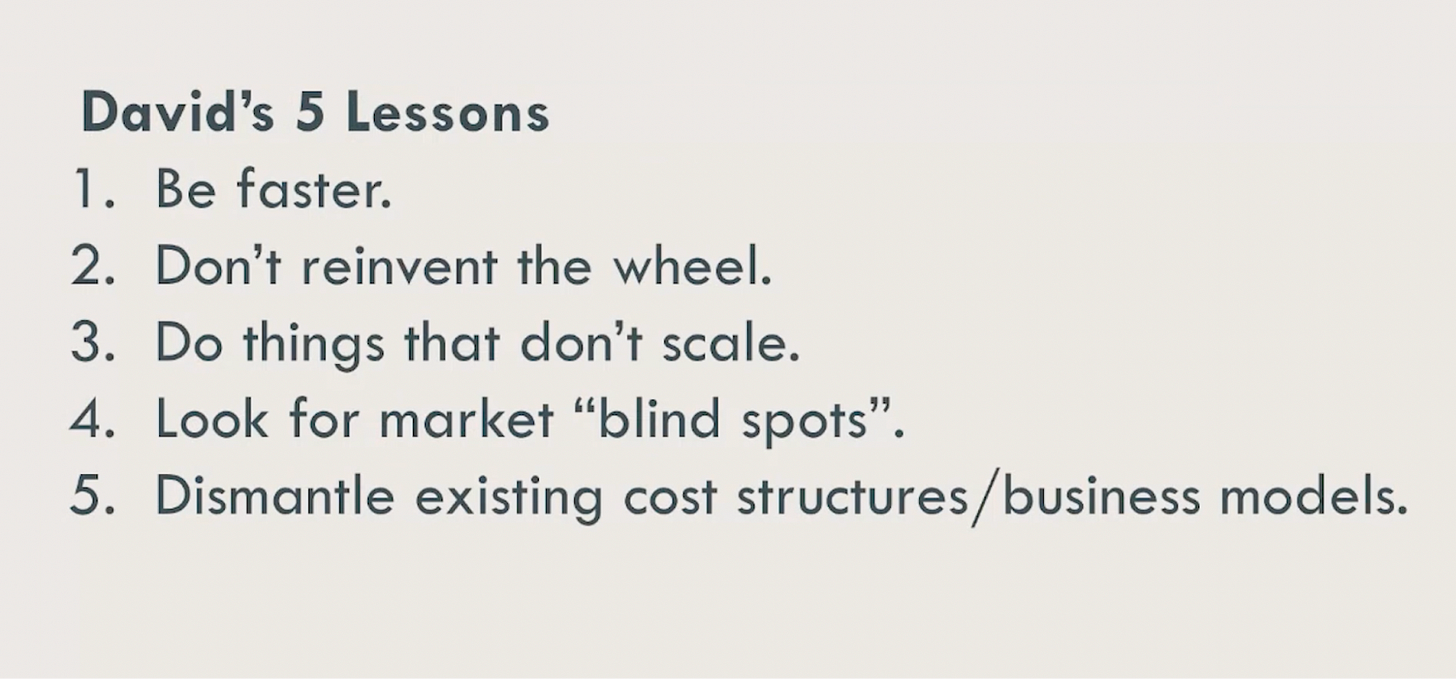Announcing “5 David vs. Goliath Product Lessons”
Our latest free Ubiquity University video lays out 5 specific techniques that enable small startups to win against powerful and large industry incumbents.
In today’s fast-paced market, startups often face seemingly insurmountable competition from established giants; but startups can leverage their unique strengths and turn their small size into an advantage.
In Ubiquity University’s latest free video, Veronica Pinchin (fractional Chief Product Officer, product advisor, PM coach & Ubiquity Extended Team member) shares 5 key lessons for startups (David) to compete against larger incumbents (Goliath): "5 David Vs. Goliath Product Lessons That Allow Startups to Win"
In this 20-minute Ubiquity University video (watch now), Veronica takes us through the following:
Lesson 1: Be Faster (& watch out for the 4 C’s of startup slowness)
Being fast is critical but is something startups frequently get wrong. The “Four C’s” of startup slowness include:
Too much collaboration: Too many decision-makers in the room actually slows progress. Empower single-threaded owners with decision-making authority.
Customers: It can be a trap to rely on too much customer feedback. One alternative is to have one person who deeply understands the problem space. Early-stage startups should prioritize building an MVP based on expertise and then using this to gather customer feedback.
Keeping quality too high: Being able to strategically sacrifice quality for speed is a key muscle to build to take on large incumbents.
Excessive confidence: Avoid rigidly sticking to initial plans (“I do what I said I’d do”) for (false) investor confidence. Pivoting is often necessary for long-term success
Lesson 2: Don’t Reinvent the Wheel
Avoid the trap of thinking that you must invent something new. Startups should study existing successful products and adapt best practices. Copying can be actually strategic.
A second mover can build with perfect visibility of what the end product should look like and avoid the first mover’s past pitfalls.
This can be done at the product and company level, and also at the feature level.
Lesson 3: Do Things That Don’t Scale
Focus first on building a deeply engaged, loyal customer community in a niche market.
Do things that shock and delight your customers, even if they aren’t scalable. This will turn your customers into your company’s advocates, feedback providers, and referrers.
Lesson 4: Look for Market “Blind Spots”
Startups can thrive, and helpfully fly under the radar of larger incumbents, by targeting underserved markets. Eg, Google says they don’t get out of bed for markets under $10 billion.
These are blind spots that bigger companies don’t care to look at because the market size isn’t large enough–startups should take advantage of this.
Lesson 5: Dismantle Existing Cost Structures/Business Models
When your large competitors were founded, many of the disruptive technologies that exist today weren’t around; many don’t leverage these technologies.
By embracing disruptive technologies and making them core to your cost structures and product development, you can move and iterate more quickly.
Summary
And if you enjoyed this video, you may also like Veronica’s last Ubiquity University Video: “The Path to Product Market Fit”
Ubiquity University: free, short videos for early-stage startups
We built Ubiquity University to unlock growth for early-stage startup leaders by sharing the latest knowledge and advice for pre-seed, seed, and Series A stage entrepreneurs. We have dozens of free, short (5-15 minute) practical videos that dive into key concepts, mindset shifts, and tactical advice to help startup leaders grow and develop. Our speakers include the sharpest technical and business experts from the Ubiquity Extended Team and beyond. If you know individuals who would benefit from Ubiquity University, please pass this along.
Ubiquity Ventures — led by Sunil Nagaraj — is a seed-stage venture capital firm focused on startups solving real-world physical problems with "software beyond the screen", often using smart hardware or machine learning.
If your startup fits this description, fill out the 60-second Ubiquity pitch form and you’ll hear back shortly.









